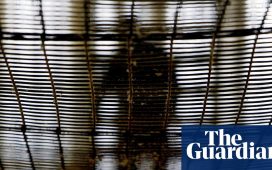
Pro-democracy activist Agnes Chow releases from prison after serving nearly seven months for her role in an unauthorised assembly during the city’s 2019 anti-government protests, in Hong Kong, China June 12, 2021. REUTERS/Tyrone Siu/File Photo Acquire Licensing Rights
HONG KONG, Dec 4 (Reuters) – One of Hong Kong’s most prominent pro-democracy activists, who was jailed as part of a China-imposed security crackdown, said on Sunday she had left Hong Kong for Canada after pressure from authorities left her with mental health issues.
Agnes Chow, 27 – a core member of a now-disbanded group of younger activists, including Joshua Wong, who helped drive Hong Kong’s pro-democracy movement – said on her Instagram account late on Sunday that she had left Hong Kong for studies in Canada.
Their group, Demosisto, dissolved hours after Beijing passed a sweeping national security law in 2020.
The law has stifled the pro-democracy movement and led to more than 280 arrests, drawing criticism from some Western governments that the legislation is a tool of repression.
Beijing says the law has brought stability to Hong Kong after mass pro-democracy protests in 2019.
Chow’s posts – her first public comments since her release from prison in June 2021 – detailed how she had remained under “supervision” from the authorities.
Chow was sentenced to 10 months in jail in Nov 2020 over an unauthorised assembly charge. She was later released on bail on the condition she check in with police regularly, and her passport was confiscated as she faced an alleged national security charge, along with others including pro-democracy businessman Jimmy Lai.
Chow said it was as if the police wanted to remind her that she hadn’t regained her freedom, and to “not try to do anything”. She said the pressures led her to be diagnosed with depression and post-traumatic stress disorder.
“Several emotional illnesses put my body and mind in a very unstable state,” added Chow.
Reuters could not reach Chow, who arrived in Canada in September, for comment.
Hong Kong police in a statement on Monday condemned Chow’s “irresponsible behaviours that blatantly challenge law and order” and urged her not to be a fugitive for the rest of her life.
Chow said it was only this year, after she was accepted by a university in Toronto, that the police agreed to return her passport if she travelled to the Chinese city of Shenzhen.
The trip included visits to Chinese tech major Tencent and a “patriotic” exhibition on China’s achievements.
“I was forced to go to mainland China in exchange for the opportunity to study abroad,” she wrote.
Chow was due to report to Hong Kong’s security police this month but decided not to return out of consideration for her personal safety and well being. “Maybe I won’t return for the rest of my life,” she wrote.
Editing by David Holmes and Gerry Doyle
Our Standards: The Thomson Reuters Trust Principles.












